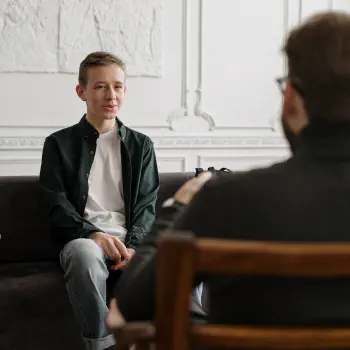The pandemic and lockdown, most noticeably, has been a time of unpredictability, new challenges, and a whole spectrum of emotions that we have had to cope with. But as we look closer and uncover these layers of difficulty that accompanies this situation, what we notice is an incredible opportunity for redefining and renegotiating what we know.
Many organizations and communities have reached out to us to facilitate a conversation on mental health care and collective support during these trying times. We have been a part of multiple check-ins, calls, workshops, support groups, and sharing of stories over the last 6 months. Across this experience, our team has been learning (and unlearning) so much about what it means to create safe, intimate spaces online, and what it takes to create them.
Navigating this newness
As facilitators, we find our grounding in our values of safety, respect, inclusion, compassion, prioritizing lived experience, and breaking power disparities. In these unprecedented times of a pandemic, when everything feels uncertain and destabilizing, our intentions and values were the only things that we were certain of. Our values anchored us and informed our actions.
Holding this close to our hearts, we were ready to foray into the virtual world, preparing for speedbumps and excited to redefine, recreate, and reimagine intimate spaces.
What were our learnings?
Here are some of the things we have learned, noticed and gathered in this journey of ‘redefining’, that we would love to share with the world:
1. Intimate need not mean “In Person”:
We began to question the notion that intimate spaces are possible only when we are next to each other physically. Many participants at our online webinars have shared stories about battling feelings of anxiety and travelling for hours to reach a physical location for a workshop.
An online space has been a preferred option for them. We were open and flexible with the community we were interacting with about our attempts at adapting our activities for the online medium. We believe it was this very honesty that proved to be the foundation of recreating intimacy in the online space as well.
2. More Presence, More Personal:
Our favourite part of these virtual intimate spaces is the joy of having nowhere else to be. Often during physical workshops, a barrier that may get in the way of fully experiencing them, is the thought of needing to get back home and the travel considerations that come with it.
The online space, on the other hand, allowed us to feel more present, focused, and not as occupied with worries such as travel or time. What we realized is that creating an intimate space may not be as much about physical locations, as much as it is about emotional connections. True presence and resonance can be felt online too, not only in person.
3. Informal is the new formal:
For many corporate organizations, there are unsaid or explicit rules and decorum around employees’ clothing and the way we project ourselves to others in a room. Now that our home is our workspace too, an opportunity has presented itself to maybe shed these rules, or at least question them.
Home is the one space where we don’t want to feel or look formal. Online work engagements from home have allowed us to see that we can thrive at meetings, presentations, and workshops without heavy emphasis on physical appearances. Some participants also joined our workshops while completing their house tasks, which we feel makes the experience even more personal.
4. Greater accessibility:
The disability justice movement has been advocating for remote conferences and workplaces since a long time. It took a global pandemic for those in power to finally listen and realize that accessibility in their work can be prioritized. It is an active decision that we must make to build a more inclusive world.
Virtual workshops can reach a wider audience that in person workshops may not be able to - such as people with physical disabilities, people living in various geographical locations and time zones. Features of various online conferencing tools such as live transcriptions, ability to change the speaker’s volume, inclusion of sign language interpreters, and greater affordability due to absence of physical costs are clear advantages of the online space.
5. Redefining what “disrespectful” means:
Indulging in human actions like getting up in the middle of the talk, moving around, stretching, getting something to eat, sipping on chai/coffee, is now possible without worrying about coming across as disrespectful to managers, peers or the facilitator.
As facilitators and presenters, it’s important to redefine ideas of “disrespect” and notice how these ideas work to keep power disparities in place.
That’s all for Part 1:
If you resonated with the learnings mentioned in this article, do view Part 2 that highlights more takeaways as well as shares a few closing thoughts on this topic.
Virtual Workshops: Redefining Intimate Spaces, For The Better. (Part 2)
The second post of our two part series on redefining and renegotiating what we know about virtual mental health workshops and webinars.
Here are some things part 2 covers:
- Redefining Affirmations.
- Being yourself through chat boxes.
- Know each other more personally.
- Breaking power disparities.
- Ease in Responding to Triggers.
Invite Us For A Mental Health Workshop.
Our workshops are 100% online, modules are people centric, and work is activity & values driven.
Feel free to reach out to us .
Invite Us


















